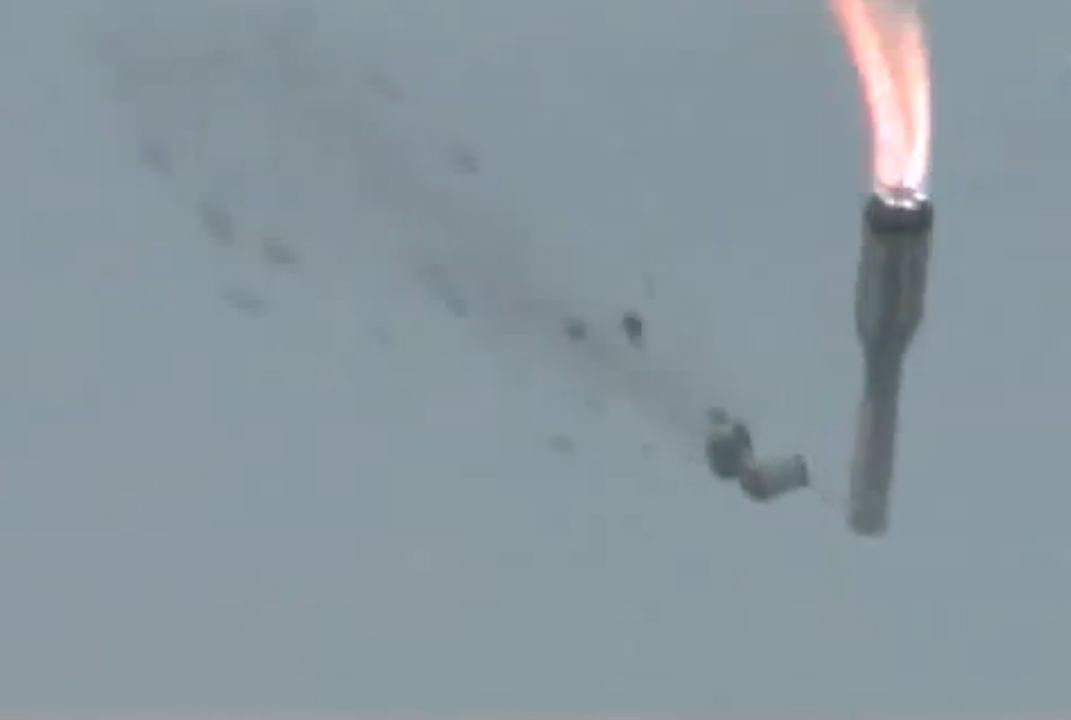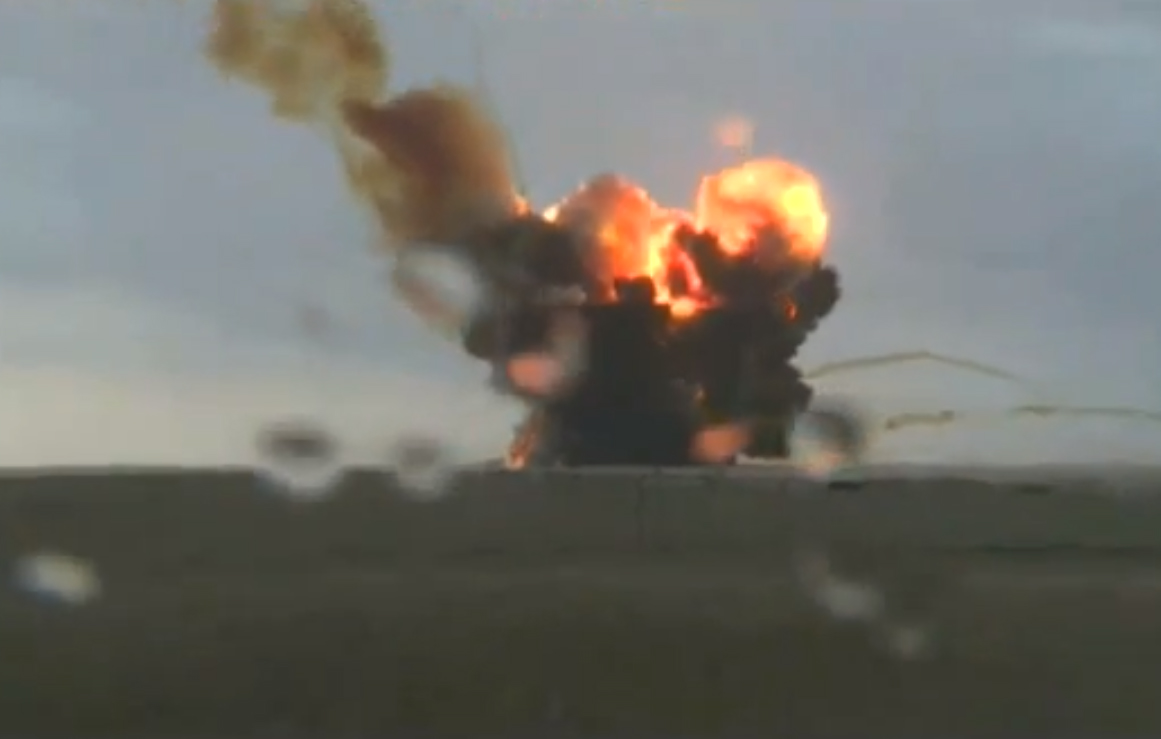Russian Rocket Explodes and Crashes In Failed Launch

A Russian rocket exploded in a massive fireball late Monday (July 1), destroying three navigation satellites after a failed launch that appeared to veer out of control shortly after liftoff and crash back to Earth.
The unmanned Proton rocket lifted off from the Central Asian spaceport of Baikonur Cosmodrome in Kazakhstan at 10:38 p.m. EDT (0238 GMT), where the local time was early morning on Tuesday, July 2.
Video of the launch shows the 17-story rocket rising from its launch pad, then oscillating wildly and rolling as it pitched over and plunged back to Earth. The rocket burst into flames and began to break apart just before slamming into the ground and erupting into a colossal conflagration.
Built by Russia's Krunichev State Research and Production Center, the Proton rocket was carrying three Glonass navigation satellites for Russia. It marked the fifth Proton rocket launch of 2013.
Russia's Proton rockets have suffered five major launch failures since December 2010. The most recent failure was in December 2012, when a Proton rocket launched a telecommunications satellite into the wrong orbit.
The Proton rocket family returned to flight in March of this year and was followed by three successful flights until Monday's failed launch.
This latest Proton rocket incident will likely lead to an in-depth investigation to trace the cause of the launch failure, with further launches awaiting the conclusion of that analysis.
Breaking space news, the latest updates on rocket launches, skywatching events and more!
Email Tariq Malik at tmalik@space.com or follow him @tariqjmalik and Google+. Follow us @Spacedotcom, Facebook and Google+. Original article on SPACE.com.

Tariq is the award-winning Editor-in-Chief of Space.com and joined the team in 2001. He covers human spaceflight, as well as skywatching and entertainment. He became Space.com's Editor-in-Chief in 2019. Before joining Space.com, Tariq was a staff reporter for The Los Angeles Times covering education and city beats in La Habra, Fullerton and Huntington Beach. He's a recipient of the 2022 Harry Kolcum Award for excellence in space reporting and the 2025 Space Pioneer Award from the National Space Society. He is an Eagle Scout and Space Camp alum with journalism degrees from the USC and NYU. You can find Tariq at Space.com and as the co-host to the This Week In Space podcast on the TWiT network. To see his latest project, you can follow Tariq on Twitter @tariqjmalik.

